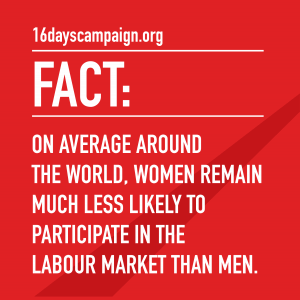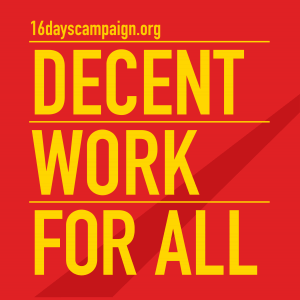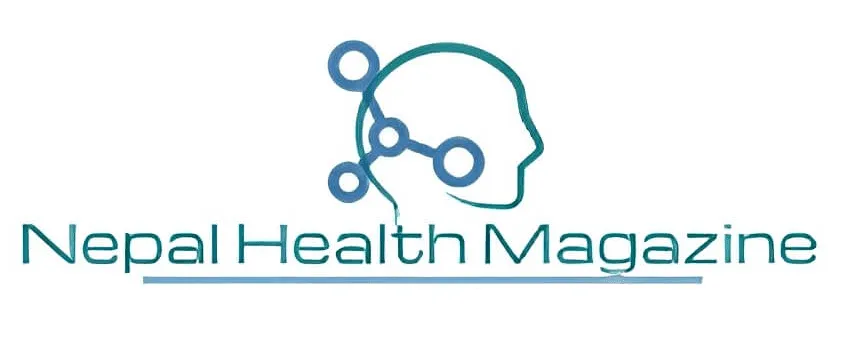The International Day for the Elimination of Violence against Women is 25th of November. 16 Days is counted from November 25 to December 10. The theme for 2020 is “Orange the World: Fund, Respond, Prevent, Collect!”
Fund: It is appealed to prioritize a minimum package of essential services that include GBV prevention in COVID-19 situation and provide flexible available funding to those organizations who works for the rights of Women.
Respond: A continuum of adequate criminal justice response is appealed to be ensured during COVID-19 lockdown and to ensure minimum essential services to place as the case of GBV lowers.
Prevent: By maintaining a concrete action plan against GBV, a national zero tolerance policy is appealed to be declared.
Collect: In order to create a database to understand the exact scenario of Gender Based Violence, it is appealed to collect data and conduct research on Gender Based Violence by ensuring survival centered and ethical safety standards.

As per the United Nations Secretary-General’s Campaign UNiTE by 2030 to End Violence against Women main principles of UNiTE Campaign Advocacy are:
- Honour and Acknowledge Women’s movements
- Leave No One Behind
- Survivor-centric
- Multi-sectoral
- Transformative
- Elevate the voices of young feminists

16 Key facts on intimate partner and sexual violence against women:
Fact 1: As per WHO multi-country on women’s health and domestic violence against women, women with sexual or physical violence were found to be15% in Japan and 70% in Ethiopia and Peru.
Fact 2: By identifying the social, cultural aspects of society, the rate of GBV can be predicted.
Fact 3: Gender Based Violence can lead to gynecological problems, induced abortions, chronic pain syndromes, gastrointestinal disorders and disabilities.

Fact 4: By Witnessing intimate partner violence, a child normal development becomes abnormal.
Fact 5: The risk of HIV infection is increased by violence as per the studies conducted in India, Rwanda, South Africa, Tanzania and the United States of America.

Fact 6: Millennium Development Goals MDG 4 on child mortality and MDG 5 regarding maternal mortality is affected by GBV. Worldwide, it is estimated that one in four women worldwide is physically and sexually abused during pregnancy.
Fact 7: The estimated cost of intimate partner violence amount to US$ 5.8 billion annually which is one of the example of GBV affecting the economic development.
Fact 8: Likelihood of conducting intimate partner violence is found to be high in men who were the victims of child maltreatment. They are likely to perpetrate 3 to 4 times intimate sexual violence than those who were not exposed to child maltreatment.
Fact 9: Men who misuse alcohol perpetrate intimate sexual violence 1.6 to 4.8 times than those who do not misuse alcohol.
Fact 10: Armed conflict, breakdown of social support structures, families, communities makes women vulnerable to suffer from rape and exploitation.
Fact 11: Intervention with Microfinance for AIDS and Gender Equity (IMAGE) was a program conducted in South Africa where earning skills sessions were conducted for 2 years which reported that within 2 years, the intimate partner violence was decreased by 55%
Fact 12: School based programs to dating violence can prevent women from the violation to dating.
Fact 13: Engaging men and boys in preventing GBV and promoting gender equality is highly effective.
Fact 14: WHO and other partners have developed a manual Preventing intimate partner and sexual violence against women to fight against GBV
Fact 15: WHO and other partners have developed an online e-learning course for health care providers on Clinical management of rape and Guidelines for medico-legal care for victims of sexual violence.
Fact 16: WHO coordinates with a network of researchers, policy makers, activists and donors to understand and prevent sexual violence.
Beside international context, in Nepal as per DOHS Annual Report 2018/19, cases registered in OCMC were:
- 1660 rape cases
- 1017 cases of sexual assault
- 2355 cases of physical assault
- 101 cases of child marriage and trafficking
- 732 cases of denial of resources
- 960 cases of emotional abuse
Where, 72% covered physical, sexual assault and rape with 38% rape and sexual assault and 34% physical assault alone.

Bibliography
- 16 Days of Activism against Gender Based Violence, 2020 UNiTE Campaign Theme:”Orange the World: Fund, Respond, Prevent, Collect!”
- DoHS Annual Report 2075/76
- Day HR. Orange the World : Fund , Respond , Prevent , Collect ! United Nations Secretary- General ’ s Campaign UNiTE by 2030 to End Violence against Women 16 Days of Activism against Gender Based Violence Concept Note for engagement. 2020;(December).
Written By : Esther Budha Magar , Public Health Student

Do you have an article , Want to Publish with us, Send your article at [email protected].
We welcome all the brilliant minds and young writers , dedicated health professionals providing them platform to be heard, and their article be enjoyed all over the world.



